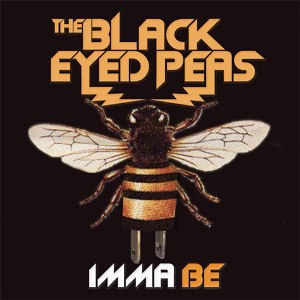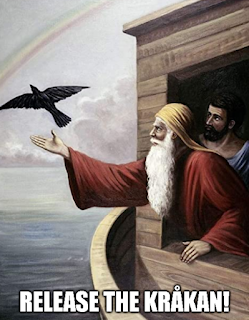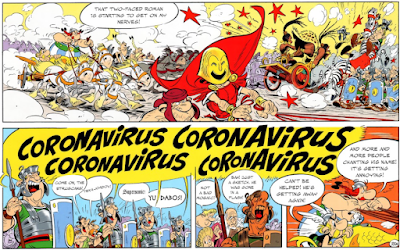And there ran a young man, and told Moses, and said, "Eldad and Medad do prophesy in the camp."
And Joshua the son of Nun, the servant of Moses, one of his young men, answered and said, "My lord Moses, forbid them."
And Moses said unto him, "Enviest thou for my sake? would God that all the Lord's people were prophets, and that the Lord would put his spirit upon them!"
-- Numbers 11:27-29
"Your Highness says her Voices have revealed to you, by her mouth, a secret known only to yourself and God. How can you know that her Voices are not of Satan, and she his mouthpiece? -- for does not Satan know the secrets of men and use this knowledge for the destruction of their souls? It is a dangerous business, and your Highness will do well not to proceed in it without probing the matter to the bottom."
That was enough. It shriveled up the King's little soul like a raisin.
-- Mark Twain, Personal Recollections of Joan of Arc
⁂
This is going to be long and meandering. I considered condensing it to a few pithy epigrams but in the end decided it would be better to "show my work."
⁂
Who or what is the ultimate spiritual authority? God, of course.
Okay, so what has God told us? Which ideas are truly from God, or in harmony with God, and which are not?
The Protestant answer is that the Bible is the inerrant word of God and can be treated as the ultimate authority. (This is how it is now at any rate; things must have been different in days of old, before Bibles were invented.) Different possible interpretations of the same biblical text are to be judged by, uh, how biblical they are -- how closely in harmony with what the rest of the Bible says. There's a certain circularity here, and in practice additional standards of judgment are needed. As the young Joseph Smith observed, people have "understood the same passages of scripture so differently as to destroy all confidence in settling the question by an appeal to the Bible."
Catholics point out that sola scritura -- the Bible alone as the standard of truth -- is self-defeating, since the Bible itself does not tell us which texts are "part of the Bible" and which are not -- and even if some Bible passage did tell us that, what good would it be unless we already had other grounds for believing that passage at least to be authoritative? Nor does the Bible provide hermeneutic principles for reading and interpreting itself -- and even if it did, how could we understand them unless we already understood them? Whatever it is that tells us that, then -- whatever defines "the Bible" and tells us what it means -- is the real ultimate authority. For Catholics, this higher authority is the tradition of the Church as interpreted by the Pope.
But of course Catholicism is not the only tradition, the Pope is not the only religious leader, and my earlier quotation from Joseph Smith was a partial one. What he actually said was that "the teachers of religion of the different sects understood the same passages of scripture so differently as to destroy all confidence." The Catholics want questions of canonicity and hermeneutics to be settled by tradition and priestly authority -- but first we must judge among the various rival traditions ("sects") and rival authorities ("teachers of religion"). And if the only way to do that is "by an appeal to the Bible," well, then we're right back where we started.
It may seem strange to say that Joseph Smith in any way "solved" this problem. After all, what did he do but found yet another sect, propose yet another alternative scriptural canon (the Protestant Bible, plus the Book of Mormon and a few other texts) and set himself up as yet another alternative "Pope"? What clarity could come from that?
The clarity comes not from following Joseph Smith as one follows a Pope, but from following his example. Smith relates how, faced with a welter of competing versions of Protestantism, "At length I came to the conclusion that I must either remain in darkness and confusion, or else I must do as James directs, that is, ask of God. . . . So, in accordance with this, my determination to ask of God, I retired to the woods to make the attempt."
There followed the famous First Vision, in which he saw and spoke with entities he understood to be God the Father and Jesus Christ, and other heavenly visitations would follow -- John the Baptist; the apostles Peter, James, and John; and, most notably, the otherwise unknown "Angel Moroni," who set in motion the chain of events leading to the publication of the Book of Mormon.
Is that the answer then? Pray to God, and he'll send you angels, or even make a personal visit, and then you'll know?
Well, no. Even if we assume that God is willing to make such experiences available to everyone -- leaving aside the observed fact that people like Moses and Joseph Smith are very much exceptions to the rule -- apparitions and visions are no more self-validating and self-interpreting than anything else. Everyone knows that the devil may appear as an angel of light -- even if the Bible didn't say so (which it does), it would be a logical possibility -- which is enough to disqualify angelic, or even seemingly divine, visitants as ultimate spiritual authorities. They, too, must be judged and discerned.
Joseph Smith's First Vision is a case in point, as it appears it was the devil that first answered his prayer.
I kneeled down and began to offer up the desires of my heart to God. I had scarcely done so, when immediately I was seized upon by some power which entirely overcame me, and had such an astonishing influence over me as to bind my tongue so that I could not speak. Thick darkness gathered around me, and it seemed to me for a time as if I were doomed to sudden destruction.
But, exerting all my powers to call upon God to deliver me out of the power of this enemy which had seized upon me, and at the very moment when I was ready to sink into despair and abandon myself to destruction—not to an imaginary ruin, but to the power of some actual being from the unseen world, who had such marvelous power as I had never before felt in any being—just at this moment of great alarm, I saw a pillar of light exactly over my head, above the brightness of the sun, which descended gradually until it fell upon me.
It no sooner appeared than I found myself delivered from the enemy which held me bound. When the light rested upon me I saw two Personages, whose brightness and glory defy all description, standing above me in the air. One of them spake unto me, calling me by name and said, pointing to the other—This is My Beloved Son. Hear Him!
Joseph Smith's interpretation of this is that he was met first with a demonic assault, because "the adversary was aware . . . that I was destined to prove a disturber and an annoyer of his kingdom," but that as he persisted in prayer the true God appeared and delivered him from the devil. But of course another possibility that comes readily to mind is that the whole thing could have been a demonic good-cop/bad-cop routine -- that the devil appeared first in his own character and then, finding that he was resisted, returned in disguise as God himself. This possibility becomes even more apparent once the Personage has delivered his message
My object in going to inquire of the Lord was to know which of all the [Christian] sects was right, that I might know which to join. No sooner, therefore, did I get possession of myself, so as to be able to speak, than I asked the Personages who stood above me in the light, which of all the sects was right (for at this time it had never entered into my heart that all were wrong)—and which I should join.
I was answered that I must join none of them, for they were all wrong; and the Personage who addressed me said that all their creeds were an abomination in his sight;
Keep in mind that these "personages" never actually identified themselves as God and Jesus; one simply called the other his "beloved son" and let Smith infer the rest. And what was the personage's message? That all Christian creeds were an abomination in his sight.
One's reaction to this reported vision reflects one's implicit hierarchy of spiritual authorities. For Smith himself, if Jesus appeared in answer to his prayer, then whatever he said must be true, even if it was something shocking, like that all Christian creeds were an abomination. (After all, didn't Isaiah also have the Lord call the religion of his time an abomination, even though it was the "true" religion given by Moses?) For others, any messenger who called Christianity an abomination must be demonic, even if he appeared in the form of Christ himself. (After all, isn't the Bible full of warnings about false Christs, and about apparent angels from heaven delivering a "different gospel"?)
Most of Smith's contemporaries were in this latter camp. When the young Smith (still a teenager) shared his vision with a Methodist minister, "I was greatly surprised at his behavior; he treated my communication not only lightly, but with great contempt, saying it was all of the devil."
At first, Smith seems not to have fully grasped what the Methodist minister and others were claiming. His reaction was, "I had actually seen a light, and in the midst of that light I saw two Personages, and they did in reality speak to me; and though I was hated and persecuted for saying that I had seen a vision, yet it was true; . . . I was led to say in my heart: Why persecute me for telling the truth?" But the mere fact of his having had a vision was really not the point. Some, of course, would claim that the vision had never happened and that Smith had made it up -- but the Methodist minister wasn't saying there had been no vision; he was saying it was all of the devil.
Later on, though, Smith kept coming back to this question of how to distinguish a genuine heavenly messenger from a demonic impostor. In his prologue to Genesis, Smith has Satan appear to Moses, saying "I am the Only Begotten; worship me!" In a pivotal scene in the Mormon temple drama, Adam prays to God and is answered by Satan ("I am the god of this world," he explains), the implication being that this could happen to anybody. At various points, Smith taught that false angels could be recognized by their hair color or by asking them to shake hands. (This latter test was later canonized as D&C 129!) In the temple drama previously mentioned, the "handshake" idea is taken further, with true heavenly messengers proving their identity to Adam by means of -- a Masonic grip and due-guard! (Mormonism uses different terminology.) All of these specific tests seem laughable to an outsider, but the point is that Smith recognized the need for some kind of test and did not naïvely assume that all "angels" are good.
Even if we grant the possibility that all of Smith's tests are grounded in fact -- that, as it happens, only fallen angels have red hair, only good angels have read Duncan's Ritual of Freemasonry, and all angels good and bad are bound by the "three grand keys" of handshakery -- the only reason for believing any of that is Smith's own authority, which in turn depends on the genuinely heavenly nature of his own visitants. We can accept these methods of judging angels only after we have already judged the "Angel Moroni" and the "personages" of the First Vision.
⁂
In Mormonism as it has developed, Smith's teachings about hair color and handshakes are little more than historical curiosities. The ultimate touchstone of truth that has been adopted is the one given in the Book of Mormon:
And when ye shall receive these things, I would exhort you that ye would ask God, the Eternal Father, in the name of Christ, if these things are not true; and if ye shall ask with a sincere heart, with real intent, having faith in Christ, he will manifest the truth of it unto you, by the power of the Holy Ghost. And by the power of the Holy Ghost ye may know the truth of all things (Moroni 10:4-5).
Of course "by the power of the Holy Ghost" is a little vague, and so Mormons tend to zero in on what is called the "burning in the bosom." In Luke, two disciples who belatedly realize that the person they have been talking to was the risen Christ say, "Did not our heart burn within us, while he talked with us by the way, and while he opened to us the scriptures?" (Luke 24:32). This is reinforced by D&C 9:8-9 -- which, while it was originally about the process of "translating" the Book of Mormon by inspiration, has been interpreted more generally as an explanation of how God answers our questions.
But, behold, I say unto you, that you must study it out in your mind; then you must ask me if it be right, and if it is right I will cause that your bosom shall burn within you; therefore, you shall feel that it is right.
But if it be not right you shall have no such feelings, but you shall have a stupor of thought that shall cause you to forget the thing which is wrong; therefore, you cannot write that which is sacred save it be given you from me.
I first experienced this distinctive "burning" on July 22, 1996 and can confirm that it is a real phenomenon and is utterly distinctive, unlike either an emotion or a physical sensation. I first felt it after asking in prayer whether Jesus Christ was the Savior of the world, whether Joseph Smith was a true prophet, and whether Gordon B. Hinckley (then leader of the CJCLDS) was a true prophet. The burning started after I asked about Jesus and continued through all the questions, subsiding some time later.
For a long time after that, my "testimony" was based on the unique nature of that "burning." When I felt it thereafter -- as I did from time to time -- it was always in the context of Mormonism, and therefore I saw it as a consistent and reliable indicator of truth. Boyd K. Packer had compared a testimony to "tasting salt" -- an experience which, while it cannot be communicated in words, is utterly distinctive and reliable.
But in fact nothing in the mere experience of saltiness entails the presence of sodium chloride. That a salty taste tends to indicate the presence of that substance is an empirically based inference, not a direct experience, and it seems perfectly plausible that it might be a highly imperfect indicator -- that other chemicals might also "taste salty," and that some things that in fact contain a great deal of salt might not "taste salty" at all.
Similarly, once the "burning in the bosom" has been experienced, it can be recognized as a distinctive and indescribable sensation (akin in that way to the taste of salt), but it does not interpret itself any more than any other experience does, and it cannot be assumed a priori to be some kind of litmus test of spiritual truth.
⁂
Synchronistical interlude:
I have been writing this post slowly over a period of many days. Just after writing the above paragraphs, in which I discuss the "burning in the bosom" and question it as a guarantee of truth, I happened to read two things. One was in The Edge of Evil: The Rise of Satanism in North America, a 1989 "Satanic panic" book by Jerry Johnston. On p. 139, Johnston briefly discusses a 1988 magazine article by Lee Coit called "Inner Listening (Guidance) Made Simple," a New Age, non-Christian explanation of how to tune in to one's "inner guide" (which Johnston implies may be demonic in nature).
The article goes on to answer a subtitled question: "How Do We Tell When It Is Working?" Coit begins to answer with method number one: "We will have a warm glow." I flip to other pages in the magazine.
Shortly after reading that, I read a post by William Wildblood called "Valentin Tomberg on the Difference Between Buddhism and Christianity." in which he quotes the following passage from that author. The italics are Wildblood's and indicate parts which he finds "particularly pertinent."
This is why the mystics of eastern Christianity do nor tire of warning beginners of the danger that they call "seductive illumination" (prelestnoye prosveshtcheniye in Russian) and insist upon the nakedness of spiritual experience, i.e. on experience of the spiritual world stripped of all form, all colour, all sound and all intellectuality. The intuition alone of divine love with its effect on moral consciousness is —they teach —the sole experience to which one should aspire.
What you will read below -- further thoughts on the inadequacy of the "warm glow" and the necessity of "intuition alone" -- was already planned before I had read the two passages quoted above.
⁂
My over-reliance on the "burning in the bosom" was one of the underlying causes of my apostasy from Mormonism, which began in late 2001. Earlier that year, I had felt the burning while reading the James Joyce novel A Portrait of the Artist as a Young Man, and then again while reading Einstein's Dream by Alan Lightman. Since these books were obviously not "true" -- both are works of fiction, and Portrait in particular has an intensely anti-religious message -- that meant that the burning was no longer consistent in its manifestations and was not a reliable indicator of anything. A few months later, when I encountered some particularly compelling secular evidence against Mormon claims, I no longer had the reliability of the burning to fall back on, and my faith quickly evaporated. At first I thought I might become a Protestant or Catholic, or even convert to Judaism, but it soon became clear that all my religious beliefs, including those that were not specifically Mormon, were grounded in the no-longer-trustworthy burning, and so I quickly became an atheist. The foolish man built his house upon the sand.
It is curious to note that, although my faith collapsed with the collapse of the burning in the bosom, it had not originally been built on that foundation. Before my prayer of July 22, 1996, I was already confident that Mormonism was true. I was praying not for my own enlightenment, but so that I would have something to tell others. I was 17 and had just returned to the world of secular "education" after a seven-year break, and was anticipating challenges to my faith. "How do you know?" people would ask me, and I would reply (because it's what Mormons are supposed to say), "I prayed and asked God, and he revealed it to me." Only he hadn't, not yet. So I was praying so that I would be able to say that. If I had been wiser, I would have noticed that my faith was obviously not based on an answered prayer, that I was seeking a rationalization for what I already believed; and I would have asked myself what my faith was really based on and perhaps discovered something important. But 17-year-olds are not noted for their wisdom.
⁂
After many years of atheism, I have returned to Christianity and even to a kind of "Mormonism." (I recognize Joseph Smith as a true prophet but am not affiliated with any church.) This time around I find that I have zero interest in "epistemology" -- in trying to justify my beliefs to those who do not share them or to explain "how I know." The burning in the bosom has played no role at all in my return to faith; nowadays, I find D&C 8 more helpful than D&C 9.
Yea, behold, I will tell you in your mind and in your heart, by the Holy Ghost, which shall come upon you and which shall dwell in your heart. Now, behold, this is the spirit of revelation; behold, this is the spirit by which Moses brought the children of Israel through the Red Sea on dry ground (D&C 8:2-3).
As I explained it in an email to a family member,
The conversion has been the result of a simple decision to "listen to my heart" -- to admit that I know what I know and believe what I believe, and to dispense with the need, once so keenly felt, to make my "official" beliefs "respectable" to anyone but myself and God.
Listen to your mind and your heart, and to the Holy Ghost that dwells therein. Trust your own intuition and judgment. That's the bottom line. Everything else is secondary, because any authority you choose to defer to is just that: an authority you choose to defer to, based on your personal judgment, and is thus "downstream" from that judgment.
⁂
I do realize that if I someone had given the above advice to me a decade or so back, when I was an atheist, I would have found it uselessly vague -- and I probably would have felt that I was trusting my own judgment above all, and that that was precisely what had led me to reject all religious authorities and become an atheist. Here are two specific messages I would give to my past self if it were possible:
1. Every time you say to yourself, "Of course I don't really believe X, but --" and then proceed to think and behave just as someone who did believe X would think and behave, you need to stop and consider the possibility that you are not being honest with yourself about your actual beliefs.
2. If you maintain that X is false but that it is nevertheless necessary to act as if it were true (see Hume's position on causation, for example) -- that means that the philosophy that led you to the conclusion that X is false is dysfunctional and needs to be reexamined from its underlying metaphysical assumptions on up.
For me, the deciding issue turned out to be human agency ("free will"). Once I faced the fact that I did believe in it, that I had to believe in it, and that I therefore needed to jettison all the metaphysical assumptions that had led me to the conclusion that it was impossible, I did not remain an atheist for long.

































